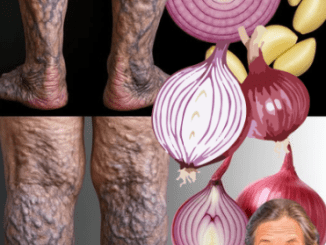
Understanding Liver Failure
Your liver is one of the hardest-working organs in your body. It filters toxins, helps with digestion, stores nutrients, and keeps your blood chemistry balanced. But what happens when it starts to shut down? Liver failure occurs when the liver loses its ability to function properly, either suddenly or over time. This condition can be life-threatening if left untreated, making early recognition and timely care absolutely crucial.
Types of Liver Failure
Liver failure isn’t the same for everyone—it develops in different ways:
- Acute liver failure – This happens suddenly, often within days or weeks, even in people with no prior liver issues. Causes include viral infections, drug toxicity (like overdosing on acetaminophen), or exposure to poisonous substances.
- Chronic liver failure – This is more common and occurs gradually over months or years. It’s usually caused by long-term damage, such as hepatitis, fatty liver disease, or heavy alcohol use.
Think of acute liver failure like a sudden power outage, while chronic liver failure is more like a slow dimming of the lights.
Causes of Liver Failure
Several triggers can lead to liver failure, and understanding them can help with prevention:
- Viral hepatitis – Chronic infections like hepatitis B and C can scar the liver.
- Alcohol abuse – Prolonged heavy drinking damages liver cells.
- Non-alcoholic fatty liver disease (NAFLD) – Linked to obesity and diabetes, this condition builds up fat in the liver.
- Drug and toxin overload – Overdoses of medications, especially acetaminophen, can be toxic.
- Genetic conditions – Disorders like Wilson’s disease interfere with normal liver function.
- Cancer – Liver cancer or cancers that spread to the liver can impair its role.
Essentially, anything that overwhelms or damages the liver repeatedly can push it toward failure.
Early Signs and Symptoms of Liver Failure
The liver is known as a “silent organ” because early issues often go unnoticed. But once failure sets in, symptoms become more visible:
- Persistent fatigue and weakness
- Yellowing of skin and eyes (jaundice)
- Swelling in the legs, ankles, or abdomen
- Nausea, vomiting, or loss of appetite
- Confusion, brain fog, or difficulty concentrating (hepatic encephalopathy)
- Easy bruising or bleeding
- Dark urine and pale stools
If you feel constantly tired, notice yellowing in your eyes, or experience unexplained swelling, it may be your liver calling for help.
Video : Acute Liver Failure | Clinical Medicine
How Is Liver Failure Diagnosed?
Doctors use multiple methods to detect and assess liver failure:
- Blood tests – Measure liver enzymes, bilirubin, and clotting factors.
- Imaging tests – Ultrasound, CT scans, or MRI can reveal damage or blockages.
- Liver biopsy – A small tissue sample checks for scarring or inflammation.
- Medical history – Lifestyle habits, medications, and alcohol intake are key clues.
Early diagnosis allows for treatment before the liver is too damaged to recover.
Treatment Options for Liver Failure
The approach depends on the cause and severity of the condition:
- Medications – Used to treat infections, control symptoms, or slow progression.
- Lifestyle changes – Stopping alcohol, eating a liver-friendly diet, and maintaining a healthy weight.
- Hospital care – Acute liver failure may require immediate hospitalization with IV fluids, monitoring, and treatments for complications.
- Liver transplant – In severe cases where the liver can’t recover, transplantation becomes the only option.
Treatment is like repairing a car engine—sometimes simple fixes work, but if the damage is too severe, a full replacement may be necessary.
Prevention: Protecting Your Liver Health
The best way to avoid liver failure is by protecting your liver before problems develop:
- Limit alcohol consumption – Moderation is key, and for some, complete avoidance is best.
- Get vaccinated – Vaccines for hepatitis A and B reduce risk.
- Practice safe habits – Avoid sharing needles or unprotected contact that spreads hepatitis.
- Eat a balanced diet – Reduce processed foods and add antioxidant-rich fruits and vegetables.
- Maintain a healthy weight – Prevents fatty liver disease.
- Use medications carefully – Avoid overdosing and always follow doctor’s advice.
Prevention is like putting a shield over your liver—it keeps damage from happening in the first place.
Lifestyle Support for a Healthier Liver
Even if you’re recovering from liver damage, daily choices can help:
- Stay hydrated – Water aids natural detoxification.
- Avoid unnecessary supplements – Some herbs and over-the-counter pills can harm the liver.
- Exercise regularly – Supports weight management and reduces fat buildup.
- Get regular check-ups – Blood tests and scans help monitor liver health.
- Reduce stress – Stress hormones can worsen inflammation and slow healing.
These habits support not only your liver but your overall well-being.
Video : Acute Liver Failure: What You Need To Know
Conclusion
Liver failure is a serious condition that can develop suddenly or over time, but it doesn’t have to catch you off guard. By recognizing the signs, addressing risk factors, and adopting a healthy lifestyle, you can protect this vital organ. If diagnosed early, treatments and lifestyle changes can make a huge difference. And in severe cases, liver transplants provide a second chance at life. Remember: your liver is your body’s built-in detox system—protect it, and it will protect you.


